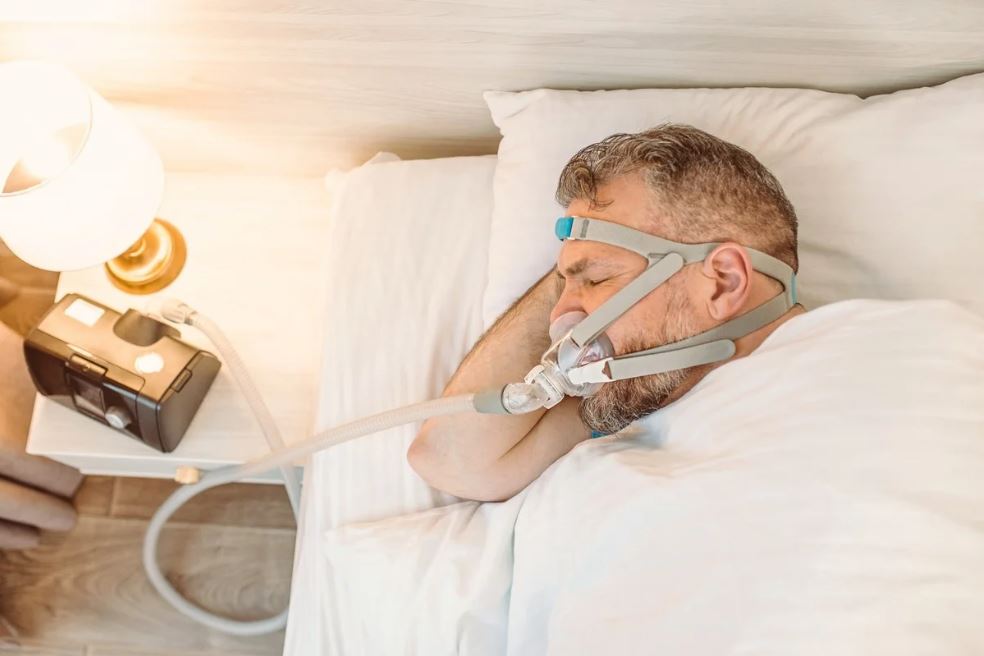A mix of alcohol and sleep apnea can have fatal consequences. While it’s true that a few drinks before bed might help you unwind and nod off, the restorative sleep your body needs isn’t being met when you’ve been drinking.
Night-time celebrations affect your resting brain wave patterns, so even if you’re in bed “sleeping” for several hours, you’ll likely feel exhausted the next morning even if we’re not talking about enough alcohol to land you with a head-ringing hangover. When you factor in obstructive sleep apnea, the price you pay for accepting that final round of drinks before calling it a night will be more than you would have anticipated.
How can Alcohol Cause Snoring?
Due to its depressive properties, alcohol can ease muscular tension. When you go to sleep, your throat muscles loosen, your tongue slides back, and your airway gets constricted. Snoring is actually just the sound of tissue vibrations in the throat caused by breathing. The higher the vibration and the more audible your snoring, the smaller your airway is. As a result, even those who don’t have OSA often end up sawing logs as they sleep.
Related: How Accurate Are Home Tests for Sleep Apnea?

It’s not true that the more quickly you fall asleep, the better sleep you’ll have.
The use of a CPAP machine can greatly improve sleep quality for those with OSA, although getting to sleep at night can be difficult for anybody at times. Although alcohol might help you fall asleep more quickly, it actually makes sleep apnea worse. You may wake up feeling worse after drinking alcohol, and the apnea episodes may last longer.
One of alcohol’s effects is to relax the muscles, as was described before. You may recall from when you initially sought therapy for OSA that the condition begins when the muscles of the soft palate relax, causing the soft palate to drop and obstruct your airway, resulting in many, brief awakenings during the night.
You may not realize it, but the lack of REM sleep is a major contributor to how exhausted you feel when you do get some shut-eye after a restless night. When combined with the muscle relaxation produced by alcohol, OSA is a recipe for a hard morning even for those who don’t have the condition.
Sleep Apnea Condition Don’t Have a Downtime
If you frequently use a CPAP machine and you’ve had a few drinks, there’s no need to take a “night off” and collapse into bed with the mask still hanging besides you. Most patients who have learned to sleep with a CPAP machine regard it as a trusted bedside friend they would never want to be without because of the quality of sleep it provides. Despite knowing the benefits of frequent use, some people may be reluctant to utilize the equipment because of initial difficulties. Indeed, it is typical.

When you’ve had a few drinks, it’s not a good idea to leave the mask hanging about your neck. If alcohol has already disrupted your sleep pattern, you owe it to yourself to sleep with the help of your CPAP machine while you sober up.
Consumption Should Be Restricted.
A large body of research dating back to the 1980s has proved beyond a reasonable doubt that alcohol use worsens sleep apnea.
No scientific evidence is necessary to tell us that drinking has negative consequences; we’ve known this since prehistoric people found that grape juice with an odd flavour made them feel wonderful. Plan to stop drinking after a certain number of drinks if you know you’ll be partaking in an evening that might involve alcoholic beverages.
Since alcohol metabolism is a slow process, cutting back is a good strategy. In all honesty, you can’t avoid it. Someone who didn’t appreciate the benefits of a good night’s sleep probably originated the nightcap custom, as even one or two drinks before bed might disrupt your sleep pattern.
One way to ensure a peaceful night’s sleep is to give yourself a “last call” a few hours before you plan to turn in. Be sure to leave yourself at least two to three hours to sober up after your last drink (the time it takes to metabolise one unit of alcohol is the same whether it’s a beer, a glass of wine, or a shot of tequila), but this may vary depending on your weight and gender. 4 The next day, you’ll be glad you did this.

Diluting liquor with water
When it comes to the brain and the body, alcohol is alcohol. Try drinking water or something else (not sweet or caffeinated) in between alcoholic beverages. Put water in between your alcoholic drinks and sleep better tonight.
It will allow you to stay at the party without drawing unwanted attention to yourself, and it will also reduce the amount of alcohol you consume, making you safer after the night is finished. Be wary of taking this tactic too far.
Having a good balance is essential.
Indulging in a few alcoholic beverages with one’s friends on occasion is perfectly acceptable. When drinking, it’s easy to believe that you’re getting a better night’s rest since you’re falling asleep more quickly, when in reality, this is not the case. Many people fall into the trap of “self-medicating” with a drink or two before night due to the attraction of falling asleep fast on a regular basis when they are chronically exhausted, but this not only deprives them of sleep but may also lead to alcohol dependence.
If you prefer to drink, doing so in moderation, calling it a night before bed, and always using your CPAP can dramatically enhance your sleep quality. Keep in mind that the staff at Air Liquide Healthcare is always there to assist you if you are having any difficulties with your sleeping routine or CPAP machine.
We can make sure your CPAP is set to the correct pressure so that you get the most out of your treatment.
